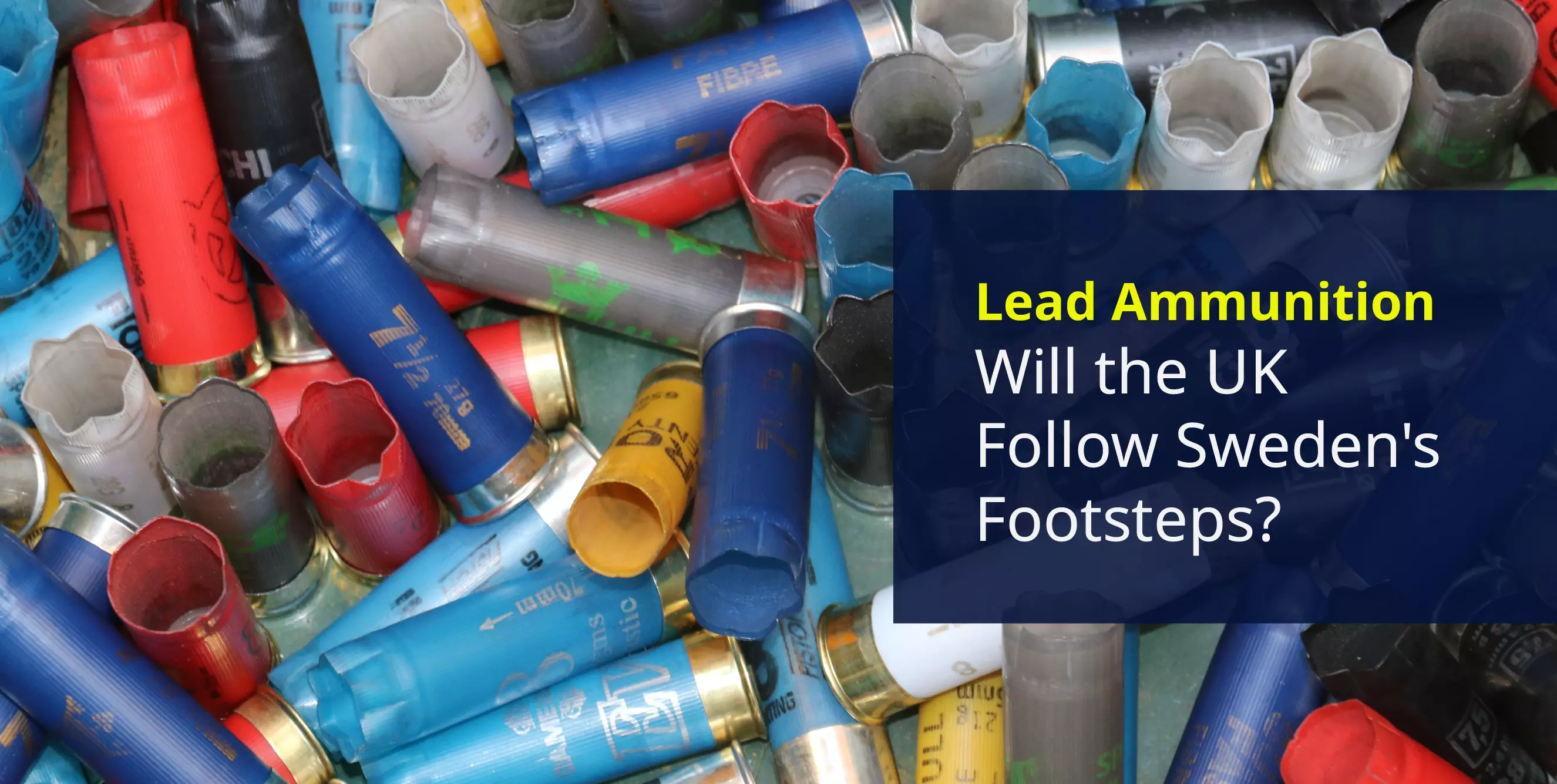Lead ammunition: Will the UK follow Sweden's footsteps?
13-Jul-2024

Mark Eves
The issue of lead ammunition in shooting sports and hunting has been a topic of discussion and regulation in several European countries, including Sweden and the United Kingdom. Recently, Sweden has taken a stance against a complete ban on lead ammunition, citing concerns related to animal welfare, shot safety, and public safety. In this blog, we'll explore whether the UK is likely to follow Sweden's example in resisting a complete ban on lead ammunition.
Sweden's position on lead ammunition
Sweden has made it clear that it intends to veto any proposal for a full ban on lead ammunition within the European Union (EU). While Sweden has already accepted a ban on using lead shot over wetlands, they argue that current measures are already sufficiently restrictive. Their decision is based on several key factors:
Animal welfare: Swedish authorities, including the Rural Affairs Minister and Environment Minister, emphasise concerns about animal welfare. They argue that lead alternatives may not ensure a clean and humane kill as effectively as lead ammunition, potentially leading to unnecessary suffering for animals.
Shot safety: Safety considerations are also a significant factor. Sweden asserts that certain non-lead ballistics could pose a risk of ricochet, which could endanger public safety. This concern underscores the importance of finding alternatives that are both safe and effective.
Lack of evidence: Sweden's decision is also rooted in the lack of conclusive evidence regarding the environmental and health impacts of lead ammunition alternatives. This echoes the stance taken by Norway, which reintroduced lead shot after an initial ban due to similar concerns.
The UK's perspective
The United Kingdom has been moving toward adopting lead-free ammunition for shotguns, with a particular focus on addressing environmental concerns. The ban on lead shot over wetlands is one example of the UK's efforts to reduce the environmental impact of lead ammunition.
However, the UK's approach may differ from Sweden's for several reasons:
Environmental focus: While Sweden emphasises animal welfare and safety concerns, the UK has been placing a stronger emphasis on environmental protection. The ban on lead shot over wetlands reflects this commitment to safeguarding ecosystems and wildlife.
Regulatory landscape: The UK has been aligning itself with EU regulations, including those related to lead ammunition. Any decision to diverge significantly from EU guidelines could have implications for international trade and partnerships.
Public opinion: The UK's approach may also be influenced by public opinion and the views of environmental organisations, which have been advocating for stricter regulations on lead ammunition.
Final thoughts
Sweden's decision to resist a full ban on lead ammunition reflects its unique concerns regarding animal welfare, shot safety, and a lack of conclusive evidence on alternatives. While the United Kingdom has been taking steps to reduce the environmental impact of lead ammunition, it is unlikely to follow Sweden's exact path due to differing priorities and regulatory landscapes. However, the debate over lead ammunition is complex and multifaceted, and the UK may continue to evaluate its policies in light of evolving scientific evidence and public sentiment.
Must read:
